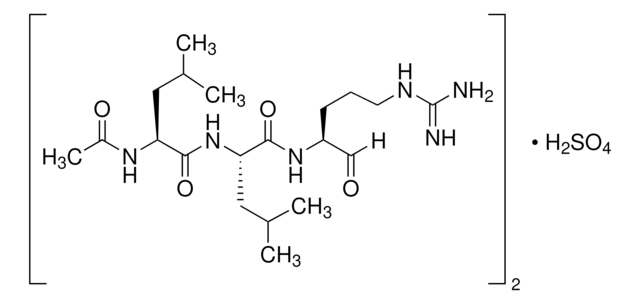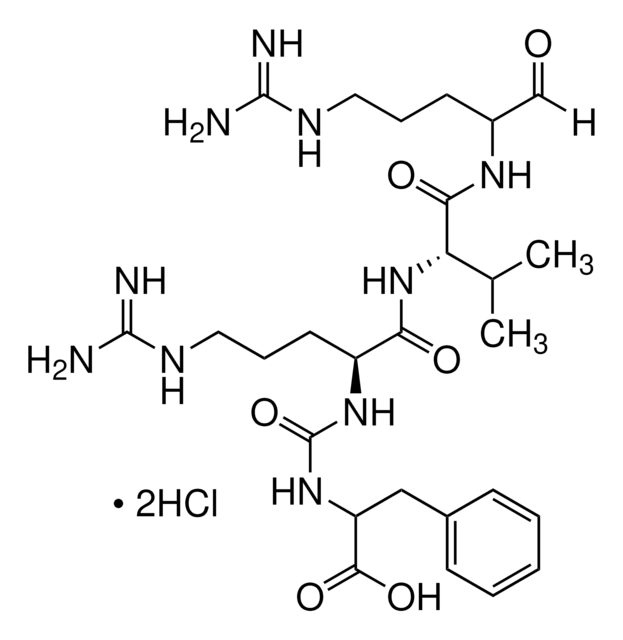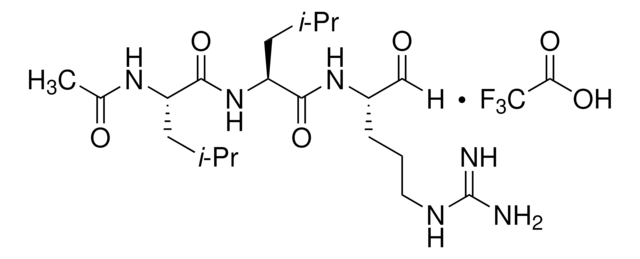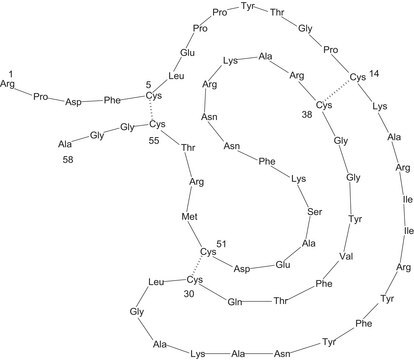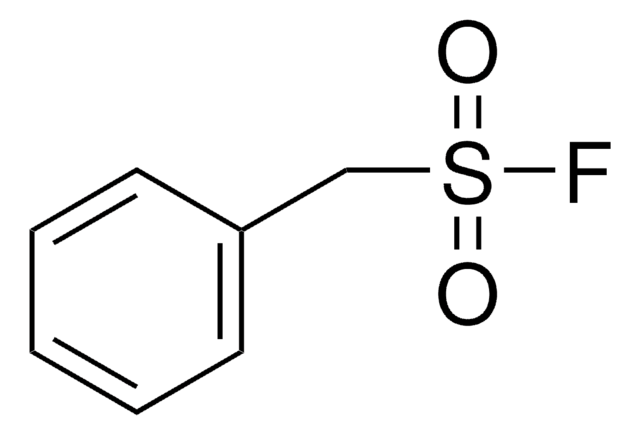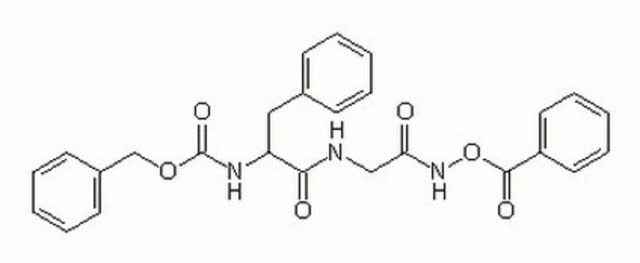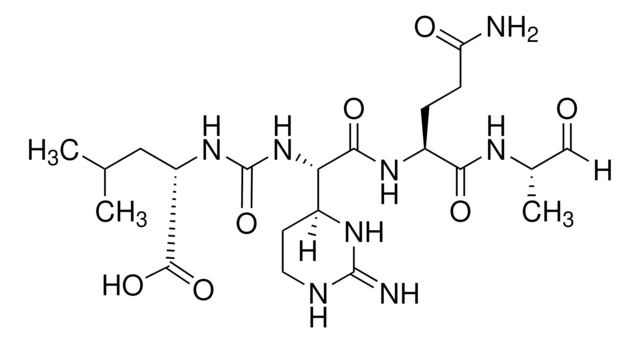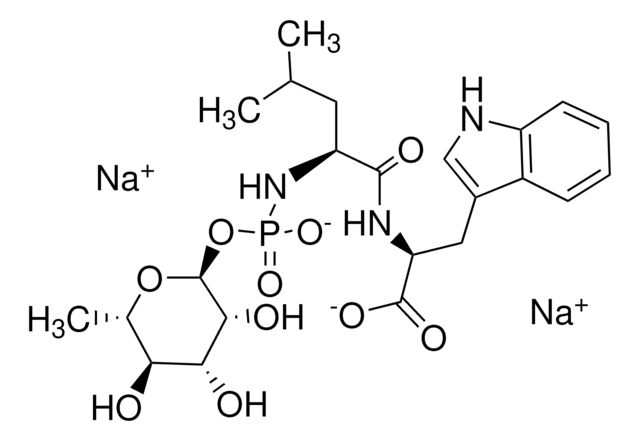C7268
Chymostatin
powder
Synonym(s):
N-(Nα-Carbonyl-Cpd-X-Phe-al)-Phe (Cpd = capreomycidine) (capreomycidine = [S,S]-α-(2-Iminohexahydro-4-pyrimidyl)glycine)
About This Item
Recommended Products
product name
Chymostatin, microbial
biological source
microbial
Quality Level
form
powder
solubility
DMSO: 10 mM (Stock solutions stable for months at −20 °C.)
storage temp.
−20°C
SMILES string
OC(C(NC(NC(C1NC(NCC1)=N)C([F,Cl,Br,I]C)=O)=O)CC2=CC=CC=C2)=O
InChI key
MRXDGVXSWIXTQL-HYHFHBMOSA-N
Looking for similar products? Visit Product Comparison Guide
Related Categories
Application
Biochem/physiol Actions
Other Notes
chymostatin A MW = 607.7
chymostatin B MW = 593.7
chymostatin C MW = 607.7
Preparation Note
WGK
WGK 3
Flash Point(F)
Not applicable
Flash Point(C)
Not applicable
Personal Protective Equipment
Certificates of Analysis (COA)
Search for Certificates of Analysis (COA) by entering the products Lot/Batch Number. Lot and Batch Numbers can be found on a product’s label following the words ‘Lot’ or ‘Batch’.
Already Own This Product?
Find documentation for the products that you have recently purchased in the Document Library.
Customers Also Viewed
Articles
Papain is a cysteine protease of the peptidase C1 family. Papain consists of a single polypeptide chain with three disulfide bridges and a sulfhydryl group necessary for activity of the enzyme.
Analytical Enzyme Chymotrypsin: Chymotrypsin is produced in the acinar cells of the pancreas as the inactive precursor, chymotrypsinogen.
Our team of scientists has experience in all areas of research including Life Science, Material Science, Chemical Synthesis, Chromatography, Analytical and many others.
Contact Technical Service